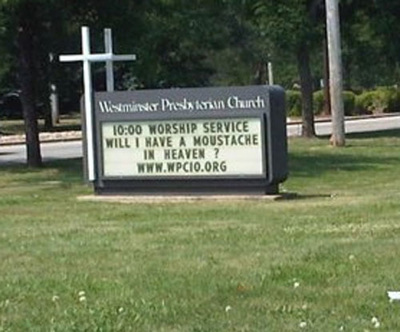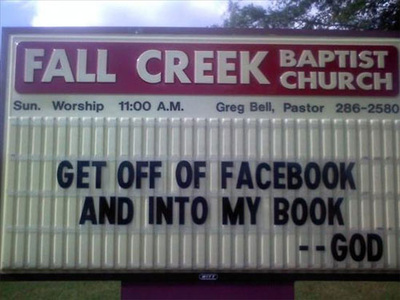The judge asked, "What are the grounds for your divorce?" She replied, "About four acres and a nice little home in the middle of the property with a stream running by."
"No," he said, "I mean what is the foundation of this case?" "It is made of concrete, brick, and mortar," she responded.
"I mean," he continued, "what are your relations like?" "I have an aunt and uncle living here in town, and so do my husband's parents."
He said, "Do you have a real grudge?" "No," she replied, "we have a two-car carport and have never really needed one."
"Please," he tried again, "is there any infidelity in your marriage?" "Yes, both my son and daughter have stereo sets. We don't necessarily like the music, but the answer to your question is yes."
"Ma'am, does your husband ever beat you up?" "Yes," she responded, "about twice a week he gets up earlier than I do."
Finally, in frustration, the judge asked, "Lady, why do you want a divorce?" "Oh, I don't want a divorce," she replied. "I've never wanted a divorce. My husband does. He said he can't communicate with me."
In truth, divorce is no laughing matter. Anyone who has gone though it knows this firsthand. Second only to one's relationship to God, marriage represents the most important earthly relationship any person can have. Because of this, its dissolution, when it occurs, is very often painful and difficult.
Last night, after Bible study at church, I completed a series of premarital counseling sessions with a young couple in our church who are preparing to be married here in a few weeks.
In our sessions together, we have talked about the Biblical Purposes of marriage (of which there are several, including companionship, pleasure, procreation, and providing a foundation for society), the Biblical Price of marriage (which is sacrificial love as demonstrated by Christ for His own bride, the church) and the Biblical Pattern for marriage. For the latter, I like to draw upon Dr. D. James Kennedy’s material on “The Ten commandments of Marriage”, about which I wrote an earlier blog.
Prior to these discussions, I always ask a couple to undertake a Personality Profile Inventory (PPI) from the Prepare/Enrich Company. Utilized by over 100,000 trained clergy members, professional counselors, mentors, and marriage educators throughout the U.S, it has been applied to over three million couples in the last thirty years. For these reasons, it is easily the leading relationship inventory and skill-building program used by marital and pre-marital counselors today.
The PPI assesses the couple’s strengths and/or weaknesses in ten different areas, including, among other things, conflict resolution, marriage roles, sexuality, finances, and spiritual beliefs. For me, one of the most significant areas measured is communication. For I have learned down through the years that if a couple does not communicate effectively, their marriage is in trouble.
When God said that it is not good for man to be alone, He was acknowledging our need for interpersonal relationships. Chief among those is a spouse with whom we can share our innermost
thoughts and feelings. Whenever a husband or a wife clams up and stops communicating, a fundamental need is no longer being met by his or her spouse.
The Apostle Paul admonishes husbands and wives in the fifth chapter of his New Testament letter to the Ephesians. Just as the church, as the bride of Christ, is to be in open communication with Him through prayer, even so must earthly husbands and wives make it a priority to communicate effectively with one another on a regular basis. If not, our relationship suffers and we tend to drift apart.
So, husband, make certain that your wife hears you talking. Wife, make certain that your husband hears you talking. Sadly, if not, as is all too often the case these days, the only one listening to and then talking to either of us will be the judge in divorce court!
NOTE: This joke is an “oldie, but goodie” available widely in the public domain. A Google search will provide many source sites.
You can read more about the diagnostic tools offered by PREPARE/ENRlCH at their official web site: https://www.prepare-enrich.com/webapp/pe/overview/template/DisplaySecureContent
.vm;pc=1406812589639;jsessionid=70333AB030B34CE191F156
05C41F17B6?id=pe*prepare_enrich*introduction.html&emb_org_
id=0&emb_sch_id=0&emb_lng_code=ENGLISH.




































